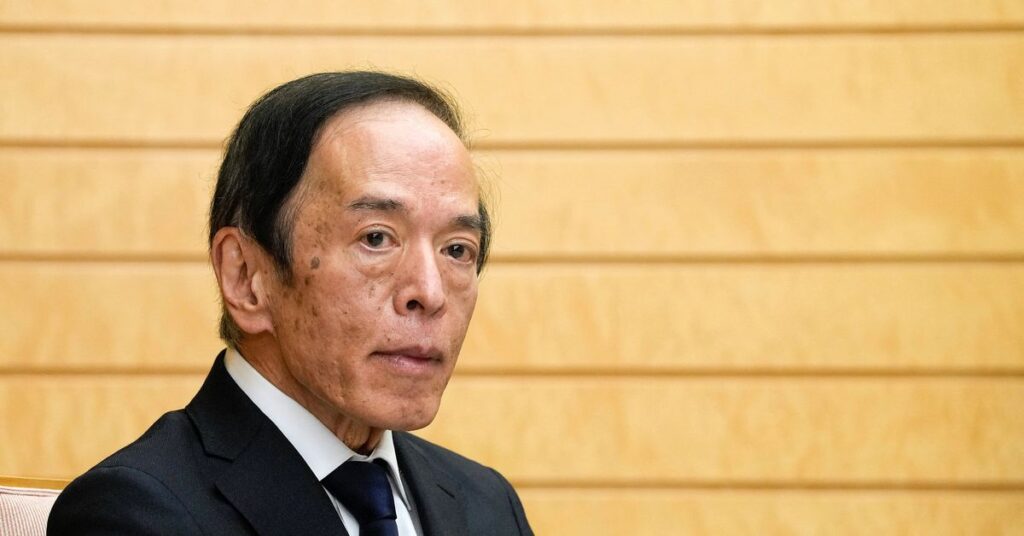TOKYO, April 10 (Reuters) – Japan’s new central bank governor Kazuo Ueda said it was appropriate to maintain the bank’s ultra-loose monetary policy for now as inflation has yet to hit 2% as a trend, suggesting he will be in no rush to dial back its massive stimulus.
But Ueda said the Bank of Japan (BOJ) must also avoid being too late in normalising monetary policy, a sign he will be more open to the idea of tweaking its controversial bond yield control policy than his dovish predecessor Haruhiko Kuroda.
“If the BOJ suddenly realises that inflation will stably and sustainably hit 2% and decides to normalise monetary policy, it will have to make very big policy adjustments,” Ueda said in an inaugural news conference on Monday.
“That will cause big disruptions in the economy and markets, so it’s important to make pre-emptive and appropriate decisions,” he said.
While there are growing signs that Japan can see inflation sustainably heading towards the BOJ’s 2% inflation target, more time is needed to scrutinise whether wages will keep rising, he said.
“When looking at current economic, price and financial developments, it’s appropriate to maintain yield curve control for now,” Ueda said.
The 71-year-old academic’s term began on Sunday, succeeding Haruhiko Kuroda, whose second, five-year term ended on Saturday.
Markets have been rife with speculation the BOJ could soon phase out yield curve control (YCC), a policy that caps the 10-year bond yield around zero, due to growing criticism that it distorts markets and hurts banks’ margins.
The dollar extended its gains against the yen to hit 133.055 , the highest since April 4, on receding expectations of a near-term tweak to Japan’s ultra-loose monetary policy.
“Ueda signalled that inflation and economic conditions did not warrant a big rise in interest rates,” said Shingo Ide, chief equity strategist at NLI Research Institute. “The chance of a policy tweak in April has diminished significantly,” he said.
PRICE TRENDS HOLD KEY
If the BOJ sees that it can achieve its price target, it might need to normalise monetary policy, Ueda said. “If not, we may need to come up with a more sustainable framework with an eye on the side-effects of monetary easing.”
Ueda faces a bumpy road as slowing global growth clouds the prospects for a sustained pickup in inflation and wages, a prerequisite for phasing out his predecessor’s controversial monetary stimulus.
Growing fears of a U.S. recession are among headwinds for Japan’s export-reliant economy. While the end to COVID-19 curbs is propping up consumption, some analysts warn a recent slew of price hikes for daily necessities could also hurt spending.
Ueda said he was mindful of the side-effects of prolonged easing and stressed the need to ensure Japan’s banking system remains sound.
He also said it was hard to commit to a set timeframe in achieving 2% inflation, suggesting that he would shift away from Kuroda’s strong focus on hitting the price goal.
But the BOJ must sustain Kuroda’s stimulus programme for the time being, including YCC, remarks that diminish the chance of a policy shift at this month’s policy meeting.
Long-stagnant inflation and wage growth in Japan are beginning to show signs of reviving. After touching a 41-year high of 4.2% in January, core consumer inflation remains above 3% as more firms hike prices in response to rising raw material costs.
To compensate households for the increase in living costs, major firms have offered wage hikes of nearly 4% this year in annual labour talks, the fastest pace in about three decades.
Ueda will chair his first policy meeting on April 27-28, when the board produces fresh quarterly growth and price forecasts extending through fiscal 2025.
Markets are focusing on whether the board projects inflation accelerating towards, or even hitting, 2% in fiscal 2024 and 2025.
Under current forecasts, the BOJ expects core consumer inflation to hit 1.6% for the fiscal year that began this month and accelerate to 1.8% the following year.
Ueda served as BOJ board member from 1998 to 2005, when the central bank introduced zero interest rates and quantitative easing to combat deflation and economic stagnation.
Reporting by Leika Kihara and Tetsushi Kajimoto; Additional reporting by Yoshifumi Takemoto; Editing by Sam Holmes, Toby Chopra and Hugh Lawson
: .


